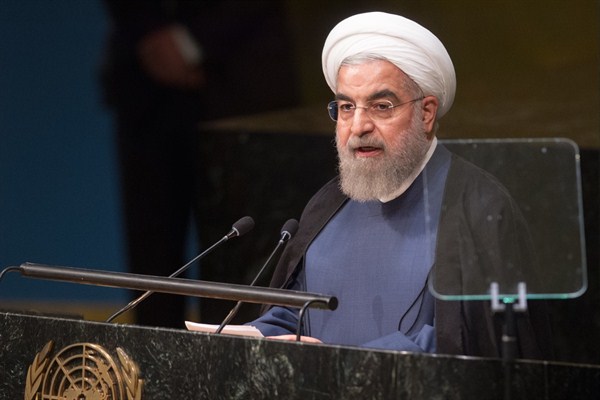At last week’s United Nations General Assembly opening, many observers were keeping a close eye on how the key players spoke of the Iran nuclear agreement and its implications for regional security and even world peace. Strikingly, both the U.S. and Iranian leaders were positive but precise in discussing the deal, with neither allowing any excessive exuberance to color their remarks. Meanwhile, their mutual accusations about which of the two countries is the source of regional instability suggest that no conceptual breakthrough in relations is about to occur.
Though Iranian President Hassan Rouhani and U.S. President Barack Obama both spoke to the General Assembly on the same day, there was no direct contact between them. (This is perhaps understandable—a casual handshake between Obama and Iran’s foreign minister, Javad Zarif, was not well-received in Iran, according to press accounts.) Both leaders praised the nuclear agreement overall, but there was little evidence from their remarks that it will, or was intended to, lead to a new era in U.S.-Iran relations. If the U.S. relationship with any country is likely to change soon, look to Israel. Prime Minister Benjamin Netanyahu, in his speech to the U.N. on Oct. 3, sounded like he was eager to put the recent tensions between the U.S. and Israel over the Iran agreement behind him and focus instead on the areas in which there is a clear convergence of interests and deep cooperation between the two long-standing allies.
Obama spoke first, as is customary for the host nation of the annual General Assembly meetings. He expressed pride in the successful nuclear negotiations as a contribution to regional and world peace, and he acknowledged the vital role that the U.N. and its related bodies played throughout the process and will continue to play in its implementation, saying “that is the strength of the international system, when it works the way it should.”

